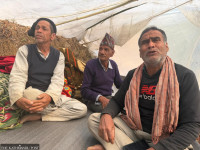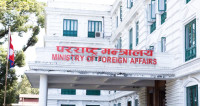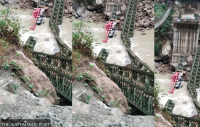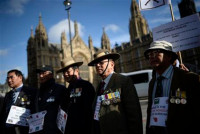National
Why a group is signing a petition asking the US to provide vaccines to Nepal
A group of Nepalis and US citizens of Nepali origin started the signature campaign after Washington announced it would share 60 million AstraZeneca vaccines with the world.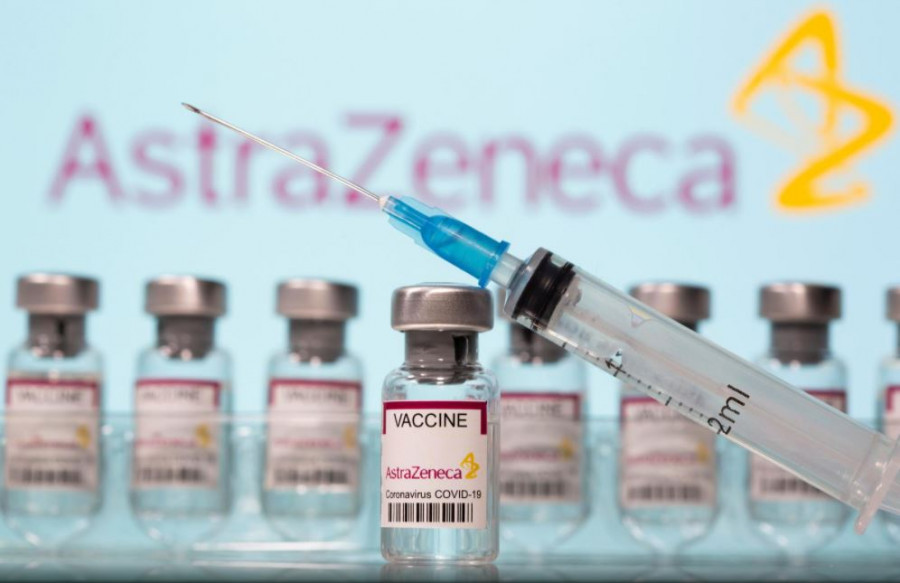
Shuvam Dhungana
People in Nepal have launched an online petition demanding that the United States provide vaccines as the country struggles to battle the coronavirus pandemic, which is sickening people in thousands a day.
The virus crisis in Nepal is deepening by the day. The country of 30 million people on Saturday reported 8, 287 new infections. The number of people dying from Covid-19 stood at 3,632. According to the Health Ministry, active cases stand at 83,493. On Saturday the positivity rate was 48 percent.
The petition which started two days ago with the signatures of 30 individuals has so far been signed by over 22,000 people.
“With only 4 percent of the population vaccinated and with India deep in crisis, it is unlikely that Nepal will receive more vaccines from what was previously its primary source,” the petition states. “We, therefore, request that the United States government immediately release at least 12 million doses of vaccine to the Government of Nepal to assist it in protecting the population.”
Nepal’s plan to procure vaccines from India has met with a cul-de-sac, as the neighbouring country itself is battling its own fight against Covid-19, reporting over 400,000 cases a day, with daily deaths more than 3,500.
The petition, by Nepali citizens and American citizens with their roots in Nepal, is requesting the United States to share the 60 million doses of AstraZeneca vaccine that Washington has committed to providing to different countries.
The White House announced last month that the US would be sharing 60 million doses of the AstraZeneca vaccine with the world after safety reviews. Though AstraZeneca vaccine is widely in use around the world, it has not been authorised by the US Food and Drug Administration yet.
In March, US President Joe Biden pledged to share about four million doses of AstraZeneca vaccine with Mexico and Canada. Both countries have approved the vaccine.
The White House announcement was also prompted by the crisis in India.
Nepal too started its vaccination drive with the AstraZeneca type vaccine, manufactured by the Serum Institute of India under the brand name of Covishield, on January 27 after it received 1 million doses in grant assistance from the Government of India.
In February, the Nepal government placed an order for 2 million doses and received half of the consignment in the third week. However, the Serum Institute has shown its inability to provide the remaining 1 million doses, after India put a ban on exports of the AstraZeneca vaccine, citing the growing demand at home as cases surged.
The US announcement to share the AstraZeneca vaccine with the world hence prompted some Nepalis to build pressure on the Biden administration to ship some million doses to Nepal.
“The only effective solution is the vaccine. We cannot wait until the deaths are in thousands before we act,” Sakar Pudasaini, one of the organisers of the petition, told the Post. “We cannot wait until the entire Nepal becomes a hotspot. We cannot allow the virus to reach villages where the infrastructure does not exist to support the infected.”
Nepal needs to inoculate its 72 percent of the 30 million population, as 28 percent of them are children under 14 years of age. The country needs around 44 million doses.
The government has inoculated a little over 2.1 million people in two phases until March 15 of which 370,000 have taken both doses.
Nepal had also received 348,000 doses of Covishield under the World Health Organisation-backed COVAX programme. China had provided 800,000 doses of Sinopharm vaccine, which was approved for emergency use by the World Health Organisation on Friday. Nepal gave emergency use approval for the Sinopharm vaccine on February 17.
With vaccine supply nowhere in sight, there is no certainty when the 1.3 million people who have received their first doses of Covishield will get the second.
The members of the public who have come together to form Covid Alliance for Nepal say the United States, which has the heft and the resources, should provide vaccines to Nepal.
The signatories of the campaign include healthcare professionals in the US, journalists, right activists, and other “influential people”, according to Pudasaini.
“We came up with the idea as everyone knows who is infected with the virus, is looking for a hospital bed or needs oxygen. Many have lost loved ones,” said Pudasaini.
According to Pudasaini, who is based in Kathmandu, they started a petition hoping that given the long-standing relationship between Nepal and the US and Nepal's fragile health care system, they would be able to convince the Joe Biden administration and the world that Nepal now needs help in the form of vaccines.
“We reached out to Ambassador [Randy] Berry to help us get our message to the decision makers in Washington, DC, share the ever-worsening reality in Nepal, and request support to supply vaccines,” said Pudasaini. “Since Nepal does not have internal capacity to produce vaccines, we have no choice but to look for international support.”
The petition was given to the US embassy in Nepal on May 5 through email but the signatures continue to be collected.
As Nepal’s virus crisis deepened, Prime Minister KP Sharma Oli on May 3 also urged the world community to help Nepal with vaccines. During his address to the nation, Oli said despite Nepal’s utmost efforts, the second wave of Covid-19 has severely hit the country with an increased number of infected people and mortality rate.
“I am aware that this invisible enemy has tested our ability and exposed our vulnerability globally. But I do believe that this deadly disease can be overcome through our collective efforts,” Oli said.
According to organisers they launched the online campaign to raise broader awareness and gain support, as well as allow Nepalis and friends of Nepal to share their personal stories.
Whether online petitions really work continues to be a debated issue. But reports suggest such petitions at least help build pressure and raise awareness about particular issues and draw the attention of the addressed parties to the matter. According to reports, for an online petition to make a difference, who created the petition, its timing, its target and what the petitioners do next also matter.
Online petitions have also been criticised for being another form of slacktivism, given the low risk involvement, as signatories don’t really need to commit anything than clicking the button.
Petitioners in Nepal, however, are hopeful that Washington will lend an ear to their calls.
“We are hopeful that Ambassador Berry and [the] Biden-Harris [administration] will hear the pleas for support from Nepal, US, and around the world and help avert the unfolding humanitarian disaster in Nepal,” Pudasaini said.




 9.92°C Kathmandu
9.92°C Kathmandu
